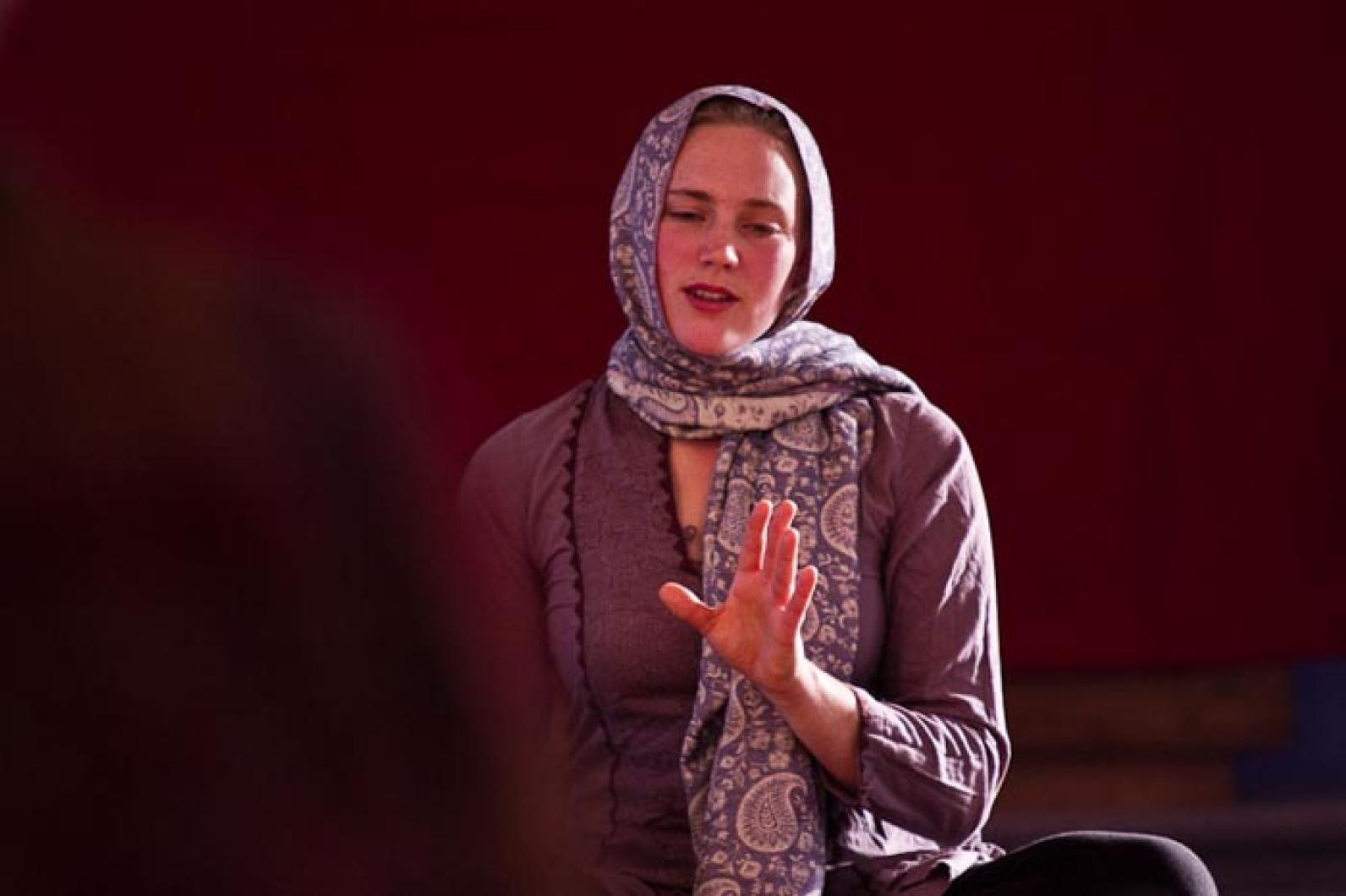Compassion is not a quick fix to social injustice and prejudice in the world. It grows too slowly within people. But without compassion there is no hope of real change. And building lasting change is the true base line of Untouchable Voices, a play written by musician Tabea Mangelsdorf and actress Anna Procter.
Untouchable Voices will be presented tomorrow at the Vineyard Playhouse at 7:30 p.m. It tells the story of the Dalit or untouchable people of India — those whose status in society is so low they are not even a part of the caste system. In a way they are like negative numbers, not even registering on the scale of what counts.
Through monologues written by Ms. Procter and songs by Ms. Mangelsdorf (with the help of musician Nathan Frederick), all of which are based on interviews with the Dalit people, the two performers give voice to a culture unaccustomed to hearing that their lives matter.
The Dalit people live primarily in India. Their numbers range around 170 million. Before the caste system was abolished in India, the Dalits were considered lower than all of the four established castes. Despite the end of the caste system, though, discrimination against the people remains.
One reason being born a Dalit is so hard, Ms. Procter said, is that in India people are often born into the work that they do. Most often this leads to an endless circle of poverty. In modern times there have been occurrences where some Dalits became very wealthy. “However, prejudice is not related to wealth alone, rather to social stature,” added Ms. Mangelsdorf. “In India you can tell someone’s social class by their last name, so some Dalits change their names.”
Ms. Procter and Ms. Mangelsdorf met at Principia College in Illinois. During a four-month program in India together, they became curious about the plight of the untouchables and decided to collaborate on a creative project. They lived mostly in the state of Rajasthan in northwest India. They conducted numerous interviews with the Dalit people living around Rajasthan and other areas of the country with the help of a translator.
“We were touched by what they said to us and coming from a background in the arts, we wanted to share that through theatre and music,” said Ms. Procter.
But when they returned from India, they realized they could not immediately begin writing. The enormity of what they had experienced required time to process. They were dealing with actual lives told in the individuals’ own words, after all, and much of the material was extremely difficult.
While they have both written for the stage (in their own mediums) before, neither had written anything as long and substantial as this project.
“Writing this piece has more meaning for me than any other piece I’ve worked on because it’s real people; it’s real experience,” said Ms. Procter. She was also clear about the performance’s intent. “We are very interested in these peoples’ stories; it’s one that hasn’t been heard. We are seeking in no way to become them or impose anything on them, but to share and to amplify their voices.”
The play is not musical theatre but rather social theatre because it deals with social injustice. It embraces the warmth of the people but also shows the dark shadow that looms over them. The performance brings this home to the audience in a way intended to evoke compassion and discussion.
“We want people to open up toward each other . . . to take time and listen to people and try to embrace more people,” said Ms. Mangelsdorf. “Usually at the performances people do that, you know, they will always hang around forever and everyone talks and shares experiences. It’s all beautiful . . . I think art brings you to that vulnerable space where you want to connect and be real.”
The Vineyard Playhouse and Sense of Wonder Creations, a Vineyard Haven-based nonprofit creative learning program for children and young people, are producing the show. Sense of Wonder director Pam Benjamin said that when she heard about the show from musician Nathan Frederick, she immediately wanted to bring it to the Vineyard.
“When I saw the video on their Web site I thought the ideas behind the show were fantastic, the motive and compassion,” Mrs. Benjamin said.
She found the themes of prejudice and social injustice to be universal as well and thought people would connect to it not only as a story of prejudice and injustice across the world but also at home.
Untouchable Voices will show on Saturday, May 14, beginning at 7:30 p.m. The cost is $15 for adults and $10 for anyone 21 and under. The show will be presented this morning at the Martha’s Vineyard Regional High School. To learn more about the show, visit untouchablevoices.com.






Comments
Comment policy »